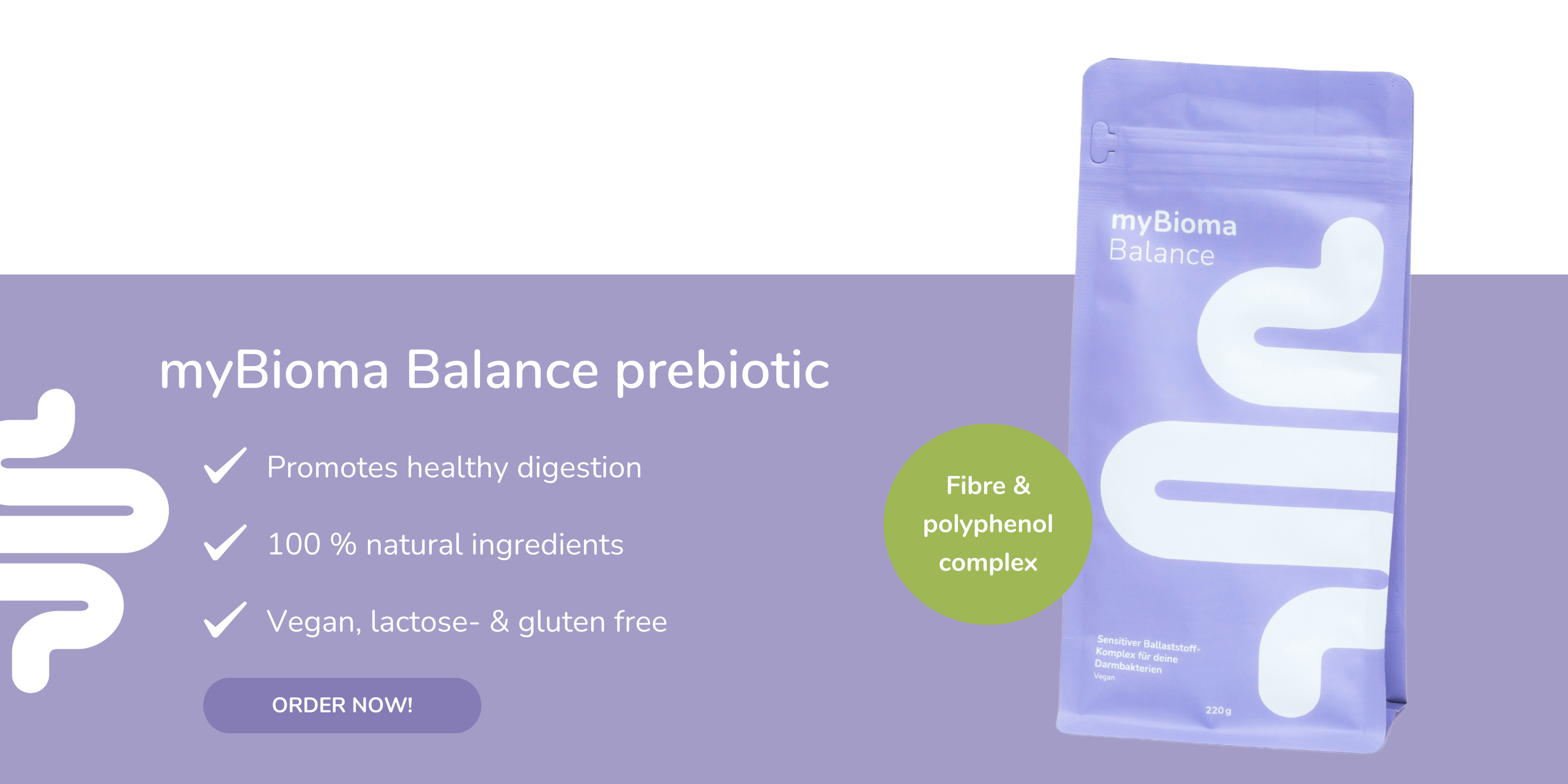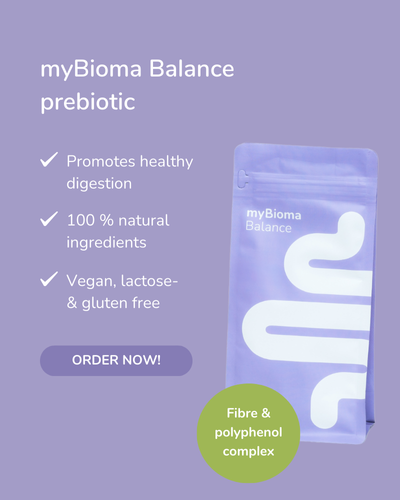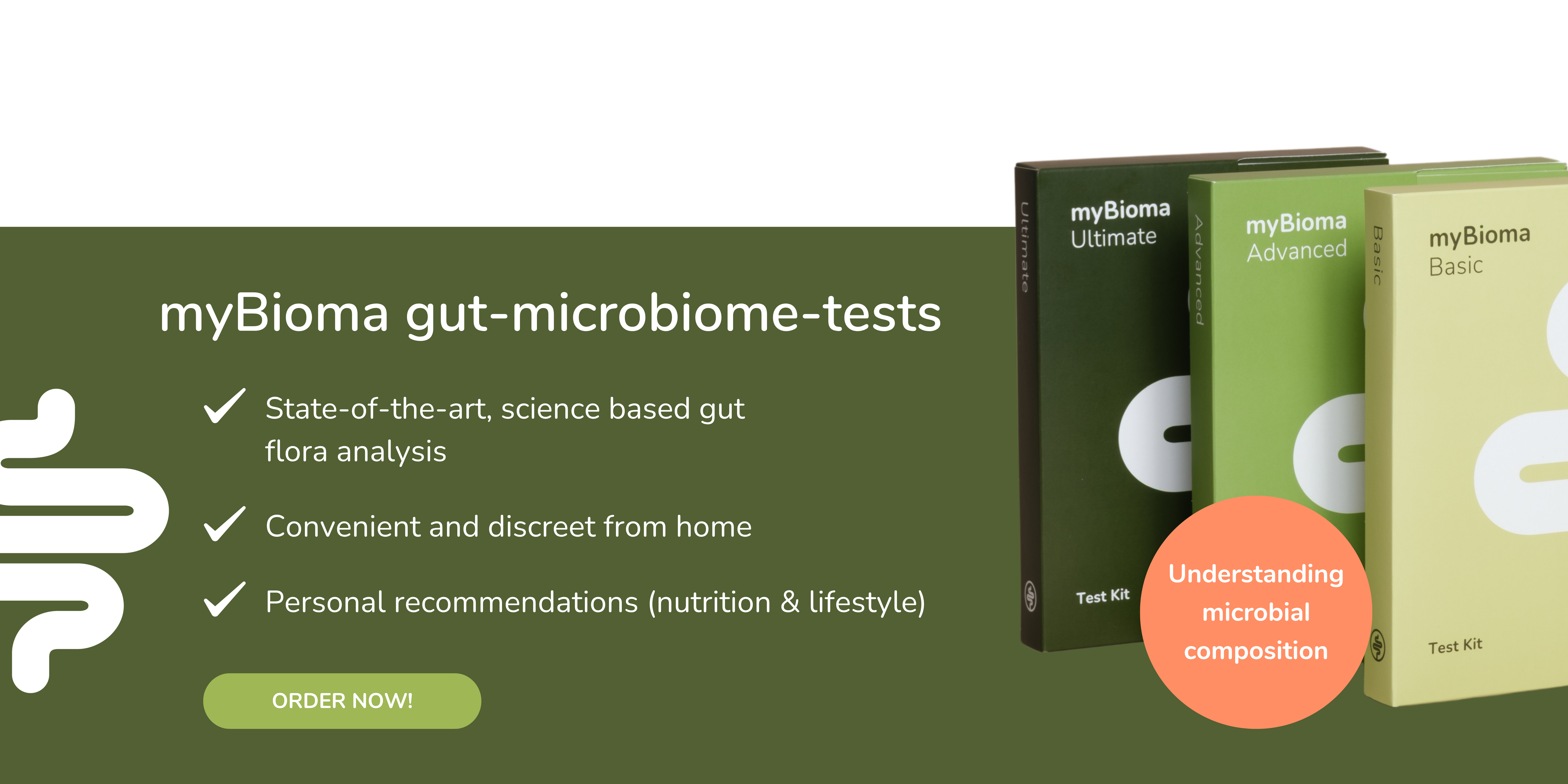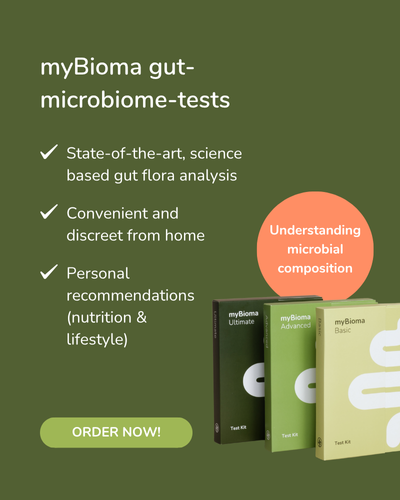Table of contents
- That’s why a healthy gut microbiome in children is important
- The development of the microbiome: Unraveling the mystery of bacterial colonization onset
- The impact of the mother's microbiome on the baby
- The path is the journey: How microorganisms travel from mother to child
- The importance of a healthy diet during pregnancy
- The role of the microbiome in the inheritance of psychological stress
Our mothers not only gave us life and passed on their genes, but they also contributed to the composition of our individual microbiome – the community of microorganisms that inhabit our bodies. In this blog post, we'll explore how the transfer of maternal gut flora to newborns occurs and examine the influences, both before, during, and after birth, that shape the child's health.
That’s why a healthy gut microbiome in children is important
During the first three years of life, newborns develop their own unique gut microbiome, also known as intestinal flora. This microbiome is less diverse and more unstable compared to that of adults during this period. The composition of a child's microbiome significantly impacts their lifelong health and can affect the risk of developing diseases in adulthood. Research suggests that an imbalanced microbiome in early life may be associated with various conditions, including allergies, asthma, inflammatory bowel disease, obesity, and chronic skin conditions like atopic dermatitis. Furthermore, the gut microbiome appears to influence brain development, potentially affecting cognitive abilities, mood, and social development. You can find more information about the mutual communication between the gut and the brain here: How the gut and the brain are connected (1,2).
The development of the microbiome: Unraveling the mystery of bacterial colonization onset
When does colonization with microbes begin? Already in the womb or after birth? Researchers do not fully agree on this, but the discussion concerns important principles of immunology and reproductive biology. For a long time, the womb was considered "sterile" and it was assumed that babies only develop their microbiome after birth. The placenta supplies the growing baby in the womb with oxygen, nutrients and antibodies from the mother's blood. An intact placenta serves as a protective shield that protects the fetus from infections. In recent years, however, there have been repeated indications of microorganisms in the placenta and amniotic fluid, which indicates the presence of the microbiome already in the womb (3). However, these studies were critically reviewed by an international team of experts in 2023 and contamination was found in the samples. This means that the original assumption that the birth process represents the first contact with microorganisms applies again (4).
The impact of the mother's microbiome on the baby
While the mother's microorganisms themselves normally do not pass through the placenta, they do have an influence on the developing baby.They generate metabolic byproducts that reach the fetus, priming it for life in an environment full of microbes post-birth (4,5).

The mother's gut bacteria produce substances that can affect the development of the baby in the womb.
Evidence suggests that the maternal microbiome impacts the offspring's epigenome in this manner. The epigenome regulates the baby's development by determining which genes are turned on or off. Research indicates a correlation between the maternal microbiome and the risk of various diseases, including metabolic and cardiovascular diseases, neurological alterations, and immune system issues. Moreover, an imbalance in the mother's microbiome composition, known as dysbiosis, may heighten the risk of pregnancy complications (5,8).
The path is the journey: How microorganisms travel from mother to child
While our primary focus is on the gut microbiome, the human body also harbors significant microbiomes in other parts of the body, such as the genital area, mouth, nasopharynx, and skin. There has long been an assumption that babies born via cesarean section may be at a disadvantage in microbiome development because they don't come into contact with microorganisms from their mother's vaginal and intestinal secretions at birth.
However, a study published in 2023 sheds new light on this concern. A Dutch research team analyzed 120 mother-child pairs to investigate their microbiomes and discovered that bacteria are transmitted through various pathways. In addition to vaginal secretions, skin contact and breast milk also play crucial roles. On average, 58.6% of a newborn's microbiome seem to originate from the mother, regardless of the birth method. The key difference lies in the source of microbes: in vaginally born babies, most microbes come from vaginal and intestinal secretions, while in cesarean-born babies, microbes mainly come from breast milk. Thus, the perceived deficit appears to be naturally compensated for (6). Nonetheless, studies repeatedly highlight an elevated risk of specific conditions like allergies, asthma, or obesity in children delivered via cesarean section. The underlying reasons are likely to extend beyond the absence of contact with the maternal vaginal microbiome and remain not fully elucidated.
This finding of that study underscores the significance of breastfeeding for infant health. Exclusive breastfeeding is linked to enhanced brain development, a robust immune system, and protection against numerous diseases into adulthood (7). Furthermore, the benefits of breastfeeding over infant formula are evident in the development of the child's gut microbiome (6,7).

Infants acquire their microbiome from both their surrounding environment and their mother. The mode of delivery influences which maternal microbiome source contributes the majority of the bacteria.
The importance of a healthy diet during pregnancy
The metabolic health of the mother has a significant impact on the health of her offspring. Malnutrition and obesity during pregnancy can result in complications and elevate the risk of numerous diseases in the baby, such as obesity, diabetes, asthma, cardiovascular disease, and impaired brain development. Sufficient intake of essential nutrients guarantees optimal provision to the fetus in utero, promoting healthy growth and organ development (5). Furthermore, nutrition profoundly impacts the composition of the maternal gut microbiome, which, as you know by now, significantly contributes to the baby's development.
The role of the microbiome in the inheritance of psychological stress
In addition to physical health, the mental well-being of the mother holds significant importance for the child's health. It's established that the gut microbiome and the brain maintain constant communication, implicating that mental disorders may also be linked to an altered microbiome. But how does this impact the baby? The inheritance of mental illnesses and trauma is a multifaceted subject with numerous uncertainties. Evidence suggests that the microbiome is a piece of this puzzle: In a study involving 450 mother-child pairs in Singapore, researchers explored how adversity experienced by the mother (including childhood abuse, anxiety, and stressful life events before and during pregnancy) influences the gut microbiome of their infants. The study's findings reveal a modified bacterial composition in the child's microbiome, with variations observed depending on the nature of the maternal psychological stress. Some of the affected bacterial species are associated with emotional and social skills. Further research is imperative to validate these findings and enhance our comprehension of the intricate intergenerational effects of psychological stress (9).
Conclusion
As you can see, the relationship between the mother and child microbiome is quite complex and many questions remain in research. However, one certainty is that the mother's health significantly impacts the baby's health, even at the level of gut bacteria, which play crucial roles in our overall well-being.
Raising awareness about the importance of women's health is paramount to us - not only during pregnancy but also before and after. We owe much to our mothers, including part of our microbiome. How about providing your mother with the opportunity to enhance her health and well-being in return? With a myBioma gut microbiome test, fascinating connections can be unveiled - easily done from home, based on the latest technology and scientifically sound. Order your microbiome test now.
References
- Kapourchali FR, Cresci GAM. (2020). Early‐Life Gut Microbiome—The Importance of Maternal and Infant Factors in Its Establishment. Nutr Clin Pract. 35(3):386–405.
- Yang I, Corwin EJ, Brennan PA, et al. (2016). The Infant Microbiome: Implications for Infant Health and Neurocognitive Development. Nurs Res. 65(1):76–88.
- Stinson LF, Boyce MC, Payne MS, Keelan JA. (2019). The Not-so-Sterile Womb: Evidence That the Human Fetus Is Exposed to Bacteria Prior to Birth. Front Microbiol. 10.
- Kennedy KM, de Goffau MC, Perez-Muñoz ME, et al. (2023). Questioning the fetal microbiome illustrates pitfalls of low-biomass microbial studies. Nature. 613(7945):639–49.
- Barrientos G, Ronchi F, Conrad ML. (2024). Nutrition during pregnancy: Influence on the gut microbiome and fetal development. Am J Reprod Immunol. 91(1):e13802.
- Bogaert D, Beveren GJ van, Koff EM de, et al. (2023). Mother-to-infant microbiota transmission and infant microbiota development across multiple body sites. Cell Host Microbe. 31(3):447-460.e6.
- Bhattacharyya C, Barman D, Tripathi D, et al. (2023). Influence of Maternal Breast Milk and Vaginal Microbiome on Neonatal Gut Microbiome: a Longitudinal Study during the First Year. Microbiol Spectr. 11(3):e04967-22.
- Ruiz-Triviño J, Álvarez D, Cadavid J ÁP, Alvarez AM. (2023). From gut to placenta: understanding how the maternal microbiome models life-long conditions. Front Endocrinol.14.
- Querdasi FR, Enders C, Karnani N, et al. (2023). Multigenerational adversity impacts on human gut microbiome composition and socioemotional functioning in early childhood. J Neuroscience. 120(30):e2213768120.









